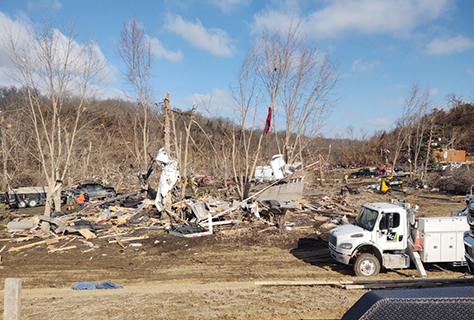IOWA CAPITAL DISPATCH – All four of Iowa’s U.S. representatives supported bipartisan legislation this week to modernize the National Weather Service’s communication networks.
The weather bill passed the House Wednesday with bipartisan support. The communication network known as the National Weather Service’s Chat provides information to the general public, broadcast stations and emergency managers regarding severe weather events.
“In March, South Central Iowa saw the deadliest storm to hit our state in more than a decade,” Rep. Mariannette Miller-Meeks said in an email response to Iowa Capital Dispatch. “As these disasters happen, we must ensure the National Weather Service is properly equipped to support communities across the United States to prepare for dangerous storms which are about to occur. This bill will give the National Weather Service the ability to update their systems to help keep our communities safe.”
In March, there was a computer glitch in the National Weather Services warning system during a tornado in Winterset, Iowa. Rep. Cindy Axne said this highlighted the need for multiple, modern communication systems during severe weather.
“This legislation has the potential to save lives and will bring us one step closer to preventing communication issues and ensuring Iowans have the information they need to protect themselves,” Axne said. “I appreciated working with Rep. (Randy) Feenstra and the rest of the Iowa delegation to support this common-sense and important legislation.”
Feenstra originally introduced the National Weather Service Communications Improvement Act, which unanimously passed the House Science, Space and Technology Committee.
“When I was elected to Congress, I promised that I would get things done for our families, farmers, small businesses, and thriving communities in Iowa,” Feenstra said. “My two bills that passed the House represent my commitment to finding solutions to the problems facing our state and nation.”
Feenstra also introduced a bill to create new qualification requirements for chief scientists at the National Oceanic and Atmospheric Administration. Chief scientists will have to enforce higher scientific integrity standards for the administration. The legislation also would require the United States president to accept recommendations from scientific organizations during the chief scientist selection process.




